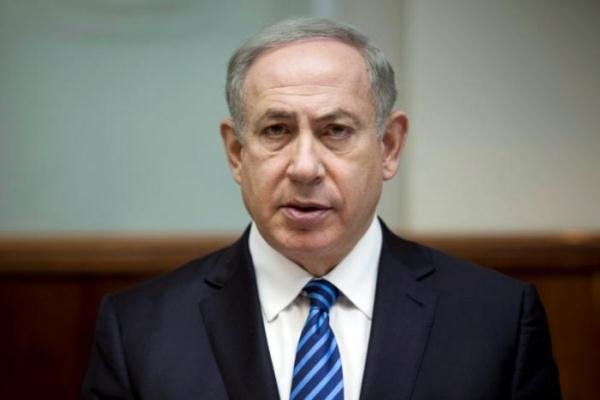Netanyahu to discuss Iran’s activity in Syria with Putin

TEHRAN - Israeli Prime Minister Benjamin Netanyahu said he would meet Russian President Vladimir Putin in Moscow on Thursday to voice opposition to what he said were Iran’s attempts to establish a permanent military foothold in Syria, Reuters reported.
“In the framework of a (future peace agreement) or without one, Iran is attempting to base itself permanently in Syria – either through a military presence on the ground or a naval presence – and also through a gradual attempt to open a front against us on the Golan Heights,” Netanyahu told his cabinet in public remarks on Sunday.
“I will express to President Putin Israel’s vigorous opposition to this possibility,” he said.
Iran and Russia are offering support to Bashar al-Assad’s government in the Syrian conflict and have brokered the recent ceasefire in Syria together with Turkey. Progress in resolving the six-year-old Syrian crisis was recently made in the Kazakh capital Astana and talks between the Syrian government and opposition forces took place in Geneva on February 23, mediated by the UN.
Additionally, the economic and military ties between Iran and Russia have been growing after the 2015 nuclear deal, with Russia recently providing Iran with the new S-300 surface-to-air missile defense systems.
However, this is not the first time Netanyahu has tried to call upon world leaders to assume a tougher stance on Iran. Last month he visited London to try and gain support from British Prime Minister Theresa May for imposing new sanctions on Iran. Prior to his visit he had spoken of a coalition with England and the U.S. to withstand what he called Iran’s “extraordinary aggression”.
May has resisted the pressure to re-examine the viability of the international nuclear deal with Iran, after Netanyahu urged her to follow U.S. President Donald trump’s example by imposing fresh sanctions.
Before meeting Trump, Netanyahu and his newest ally in the White House had already aligned on a tough stance against Iran. Trump and Netanyahu are both strong critics of the nuclear deal and have shifted their focus to Iran’s ballistic test on January 29.
After Iran’s ballistic missile test, which the White House claimed “violated the spirit of the nuclear deal”, Trump responded by imposing sanctions on 25 individuals and entities, with alleged links to Iran’s Revolutionary Guards Corps.
Iran has denied that its missile test violated the UN Security Council Resolution 2231 that endorsed the 2015 nuclear deal with six world powers, saying “the test was in line with its defense program”.
The resolution calls upon Iran “not to undertake any activity related to ballistic missiles designed to be capable of delivering nuclear weapons, including using such ballistic missile technology”.
Iranian Foreign Minister Mohammad Javad Zarif commented on the issue, saying, “The missiles aren’t part of the nuclear accords. Iran will never use missiles produced in Iran to attack any other country”. He added that Iranian missiles were not designed to carry nuclear warheads and thus did not violate the Resolution 2231.
KB/AK
Leave a Comment